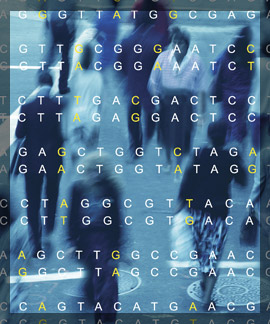Aviso de archivo
Esta es una página de archivo que ya no se actualiza. Puede contener información desactualizada y es posible que los enlaces ya no funcionen como se pretendía originalmente.
Home | Glossary | Resources | Help | Contact Us | Course Map
Occasionally law enforcement conducts a DNA dragnet or mass screening in which the public is asked to submit DNA samples for typing in an effort to solve difficult cases. The 4th Amendment requires that law enforcement have probable cause before an individual is arrested or have reasonable suspicion of criminal activity before an individual is detained [Terry v. Ohio, 392 U.S. 1; 88 S. Ct. 1868; 20 L. Ed. 2d (1968)]. However, the 4th Amendment does not prohibit law enforcement from approaching citizens in the community to ask for their cooperation in providing a DNA sample. Consensual contact between law enforcement and the citizens of a community is permitted. [Davis v. Mississippi, 394 U.S. 721 (1969)]. Provided that consent is obtained voluntarily and there has been no coercion, law enforcement may collect voluntary DNA samples for typing.
Additional Online Courses
- What Every First Responding Officer Should Know About DNA Evidence
- Collecting DNA Evidence at Property Crime Scenes
- DNA – A Prosecutor’s Practice Notebook
- Crime Scene and DNA Basics
- Laboratory Safety Programs
- DNA Amplification
- Population Genetics and Statistics
- Non-STR DNA Markers: SNPs, Y-STRs, LCN and mtDNA
- Firearms Examiner Training
- Forensic DNA Education for Law Enforcement Decisionmakers
- What Every Investigator and Evidence Technician Should Know About DNA Evidence
- Principles of Forensic DNA for Officers of the Court
- Law 101: Legal Guide for the Forensic Expert
- Laboratory Orientation and Testing of Body Fluids and Tissues
- DNA Extraction and Quantitation
- STR Data Analysis and Interpretation
- Communication Skills, Report Writing, and Courtroom Testimony
- Español for Law Enforcement
- Amplified DNA Product Separation for Forensic Analysts


